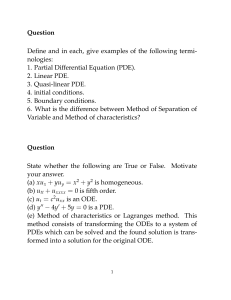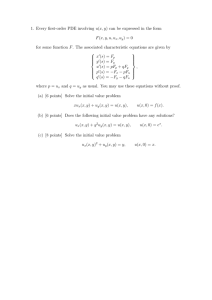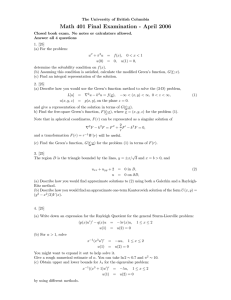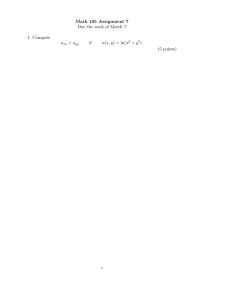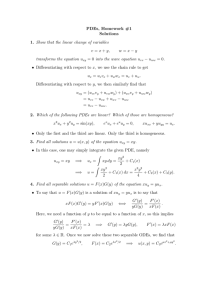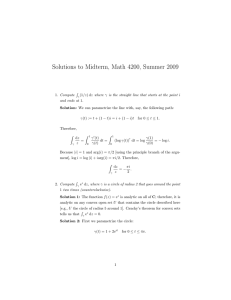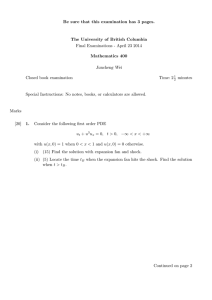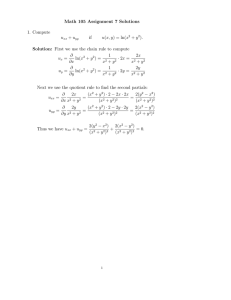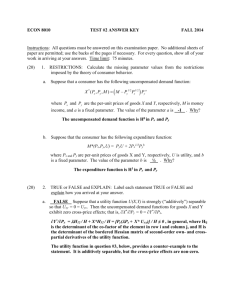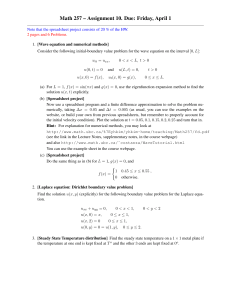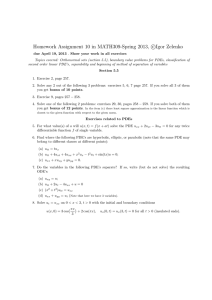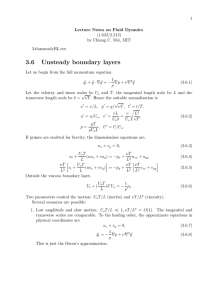PDEs, Homework #1 Problems: 2, 4, 5, 6, 7
advertisement
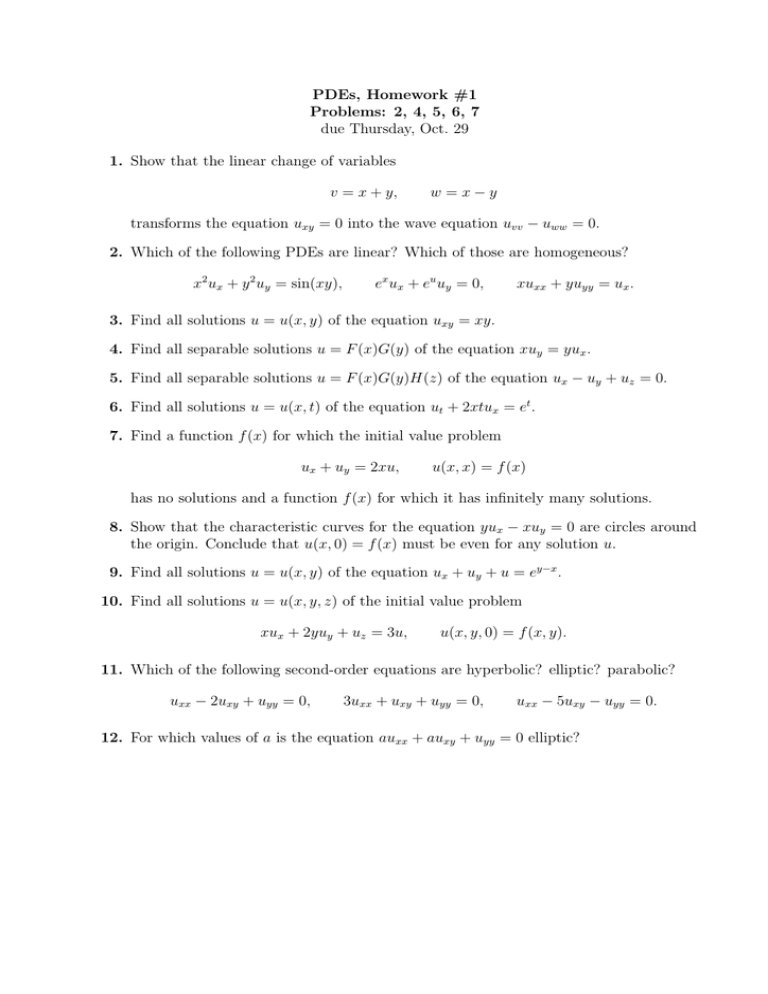
PDEs, Homework #1 Problems: 2, 4, 5, 6, 7 due Thursday, Oct. 29 1. Show that the linear change of variables v = x + y, w =x−y transforms the equation uxy = 0 into the wave equation uvv − uww = 0. 2. Which of the following PDEs are linear? Which of those are homogeneous? x2 ux + y 2 uy = sin(xy), ex ux + eu uy = 0, xuxx + yuyy = ux . 3. Find all solutions u = u(x, y) of the equation uxy = xy. 4. Find all separable solutions u = F (x)G(y) of the equation xuy = yux . 5. Find all separable solutions u = F (x)G(y)H(z) of the equation ux − uy + uz = 0. 6. Find all solutions u = u(x, t) of the equation ut + 2xtux = et . 7. Find a function f (x) for which the initial value problem ux + uy = 2xu, u(x, x) = f (x) has no solutions and a function f (x) for which it has infinitely many solutions. 8. Show that the characteristic curves for the equation yux − xuy = 0 are circles around the origin. Conclude that u(x, 0) = f (x) must be even for any solution u. 9. Find all solutions u = u(x, y) of the equation ux + uy + u = ey−x . 10. Find all solutions u = u(x, y, z) of the initial value problem xux + 2yuy + uz = 3u, u(x, y, 0) = f (x, y). 11. Which of the following second-order equations are hyperbolic? elliptic? parabolic? uxx − 2uxy + uyy = 0, 3uxx + uxy + uyy = 0, uxx − 5uxy − uyy = 0. 12. For which values of a is the equation auxx + auxy + uyy = 0 elliptic?
